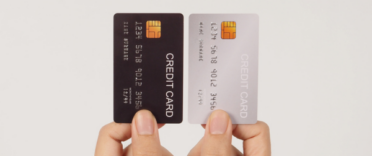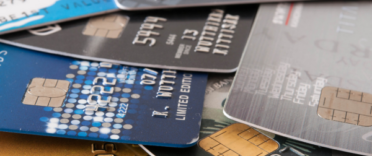 Understanding how a credit card works can ensure you use it in a way that benefits you. There are credit cards that do not charge interest for a certain period, credit cards that can offer great rewards, credit cards that let you transfer debt and credit cards you can use to build and improve your creditworthiness. In this article we explain how credit cards work – including all the different types – so that you can make an informed decision about what option will best suit your financial situation.
Understanding how a credit card works can ensure you use it in a way that benefits you. There are credit cards that do not charge interest for a certain period, credit cards that can offer great rewards, credit cards that let you transfer debt and credit cards you can use to build and improve your creditworthiness. In this article we explain how credit cards work – including all the different types – so that you can make an informed decision about what option will best suit your financial situation.
How do credit cards work?
Credit cards allow you to spend up to a certain limit decided by your credit card provider. This limit can range from a few hundred pounds for applicants with a poor borrowing history, all the way up to thousands of pounds for more proven credit card users. You then pay back the amount borrowed either in full or in monthly instalments. There will always be a minimum amount you need to pay back each month. This will be at least 1% of the outstanding balance, though it is usually between 3 and 5%. You can pay more than this if you wish to. If you don’t pay off the amount in full at the end of the month, you will pay interest. The only exception is if your credit card offers an introductory interest-free period for a set number of months.
You will need to provide certain information when you apply for a credit card. This usually includes your full name, address (you may need to supply previous addresses too), date of birth, annual income, email address, phone number and bank details. You often don’t need to provide identification documents, but in some cases you might be asked for a copy of your driving licence, your passport, a bank statement and a utility bill.
How different types of credit cards work
Not every credit works in the same way. How your credit card works – and the best way for you to use it – will depend on the type of credit card you have chosen.
Below we have outlined how each type of credit card works and who they are best for, to help you decide which credit card is right for you.
How do 0% purchase credit cards work?
Purchase credit cards are best suited to people who have a large expense coming up and will need a bit of time to pay it off. If you choose a 0% purchase credit card, you can avoid paying interest on your balance for a number of months, which means all of your monthly repayments will go towards paying off your debt. This means you can spread the cost of buying something over several months.
Be aware that some 0% purchase credit cards require you to carry out your spending within a set number of days. Also, you will start paying interest once the 0% period ends. It is therefore best to clear your balance before the interest-free offer is over.
The best deals are usually only offered to those borrowers who have an excellent credit rating, so if yours is not up to scratch you may not be offered the interest-free period advertised, or your application could be rejected entirely.
You can read more information on purchase credit cards in our article ‘Compare the best 0% purchase credit cards’.
How do balance transfer credit cards work?
If you have an existing debt to clear, you could consider using a balance transfer credit card. This type of card allows you to move existing card balances across and pay them off at a lower rate of interest. With a 0% balance transfer credit card, you could even pay it off with no interest at all. This can help you get debt-free more quickly and much more cheaply.
Keep in mind that you will usually have to pay a transfer fee and interest will kick in once any 0% deal ends. If you haven’t cleared your balance before this point, you may find it is best to carry out another balance transfer to avoid paying interest. Many 0% deals also only apply to transfers made within a set number of days, so check this before you apply.
As with most credit cards, the best deals will likely only be offered to those with a good credit rating. You can read more about balance transfer cards in our article ‘Best 0% balance transfer credit card deals’.
Taking on an extra line of credit to deal with existing debt will not be the answer for everyone. If you are struggling with debt, get some free debt advice to find out what your next step should be. We have more information in our article ‘Where to get free debt advice’.
How to find out which credit card is best for you
Money to the Masses uses Creditec*, an online comparison service that enables you to find credit card deals tailored to you without affecting your credit score. You will want to compare as many different options as possible before you get a new credit card, so it is a good idea to do a fast online comparison. With only a few basic details, the Creditec tool will build a personalised list of credit cards suited to your needs to help you navigate the huge number of options out there. You can then pick the result that suits you best. None of this will affect your credit score as the eligibility process uses a soft credit check. Click here to start your comparison*.
How do money transfer credit cards work?
Money transfer credit cards allow you to transfer money from your credit card into your bank account, then use the funds for whatever you need. For example, you could pay off an overdraft or loan, or use the funds to make a purchase. You then pay back your credit card provider each month, just as you would with any other credit card. A money transfer credit card could also help you cover an emergency expense that you cannot pay for with a credit card.
Some money transfer cards offer interest-free periods, but you will usually have to carry out your transfer within a set number of days. Like with balance transfer cards, there is usually a transfer fee to pay too – often around 4% of the total amount. Find out more in our article ‘A complete guide to money transfer credit cards’.
How do reward and cashback credit cards work?
Some credit cards offer rewards or cashback based on what you spend. Rewards could include loyalty points at your favourite retailer or air miles that you can put towards the cost of a flight.
Cashback credit cards pay a certain percentage of your spend back to you, though the total amount you can earn is usually capped. In some cases you may receive a higher cashback rate for the first few months as part of an introductory offer.
Keep in mind that these types of credit cards often come with a high interest rate, so only use one if you are confident you can pay off your balance in full every month. Some cards also charge annual fees. It is important to factor in how much the card will cost you when comparing offers, as fees can quickly wipe out the rewards for some users. Read more in our article ‘Compare the best cashback and reward credit cards’.
How do credit builder credit cards work?
Credit building cards are designed for those who do not qualify for mainstream credit cards or who are trying to improve their credit score. By making your repayments on time and not going over your limit, you can gradually build up your credit score. You may then be able to apply for a more competitive credit card.
It is worth noting that credit builder cards often have low credit limits. However, they can increase if you make your repayments on time. Interest rates are also usually very high, so it is important to clear your balance in full each month. You can learn more by reading our ‘Compare the best credit cards if you have bad credit’ article.
Remember that there are other ways to improve your credit score without applying for a new credit card. Read our article ‘How to improve your credit score quickly’ to see if there are any easy steps you can take to boost your score.
How do travel credit cards work?
There are a number of credit cards that are designed for overseas spending. These cards do not charge foreign transaction fees or cash withdrawal fees while you are away, though you will usually be charged interest on cash withdrawals.
If you use a standard credit card abroad you can often get stung by fees. For example, many providers charge a foreign transaction fee – which is often 2.75% to 2.99% – every time you spend. On top of this, if you withdraw cash on your standard credit card, you will usually pay another fee of around 2.99%, plus interest from the moment you withdraw your cash even if you pay off the balance in full.
A specialist travel credit card can be a great way to avoid these extra charges, while still accessing all the other benefits of using a credit card. There are also multiple debit card providers that do not charge fees for spending abroad. Check out our article ‘Compare the best travel credit cards’.
How do credit card payments work?
Buying something with a credit card means that the cost of the item you purchase is added to your credit card balance. Once your monthly billing cycle ends, you will get a bill from your credit card provider with details of your total balance. The bill will include the minimum amount due and a date you need to pay by. If you choose to only pay the minimum amount, the rest of your balance will roll over to your next billing period and this is the amount that you may need to pay interest on.
If you pay off the balance in full at the end of the month, you will not need to pay any interest. Keep in mind that your balance will also include any annual fees, foreign transaction fees, cash advance fees (for withdrawing cash), missed repayment penalties, and any other charges.
How do credit card interest rates work?
When you compare credit cards, you will see that each option comes with a percentage. This figure is the representative APR (Annual Percentage Rate) and roughly shows how much borrowing on that card will cost over the course of a year. It is not an exact reflection of how much that card will cost you, but it is a good way to compare borrowing costs. You can read more in our article ‘What is representative APR?’.
Once you are approved for a credit card, your provider will send you details of your personal APR. This is the annual cost of borrowing on your credit card. For example, if your interest rate is 30%, at the end of the month you will be charged 2.5% (30% divided by 12 months) interest on your outstanding balance.
Some cards will offer an initial 0% APR as an introductory offer. We explain 0% cards in more detail in our article 'What does 0% interest, or APR, mean on a credit card?'.
How does credit card payment protection work?
Credit cards offer purchase protection under Section 75 of the Consumer Credit Act, which makes credit card providers equally liable with vendors. This means that if you have spent over £100, but not more than £30,000, and there is a problem with your purchase, you can claim your money back through your credit card company. Find out more in our article ‘Section 75 of the consumer credit act explained’.
How do credit card applications work?
Getting a credit card is not as simple as getting a debit card, as the credit card provider will want to check that you are a trustworthy borrower. This means a credit card application will involve a ‘hard’ check on your credit file to see if you have a history of missed payments or defaults. Too many hard checks in a short period of time can make it difficult to borrow money in the future, as it can appear that you are desperate for credit and struggling to manage your finances. You can make sure you are in a good place to apply for a credit card by reading our article ‘How to apply for a credit card’.
If a link has an * beside it this means that it is an affiliated link. If you go via the link Money to the Masses may receive a small fee which helps keep Money to the Masses free to use. But as you can clearly see this has in no way influenced this independent and balanced review of the product.






